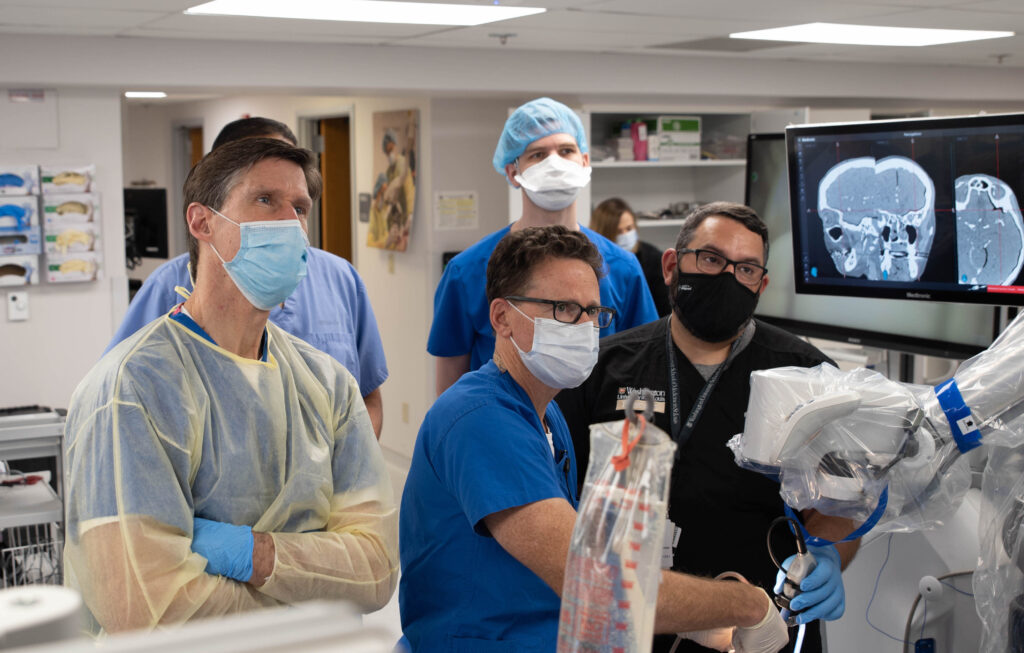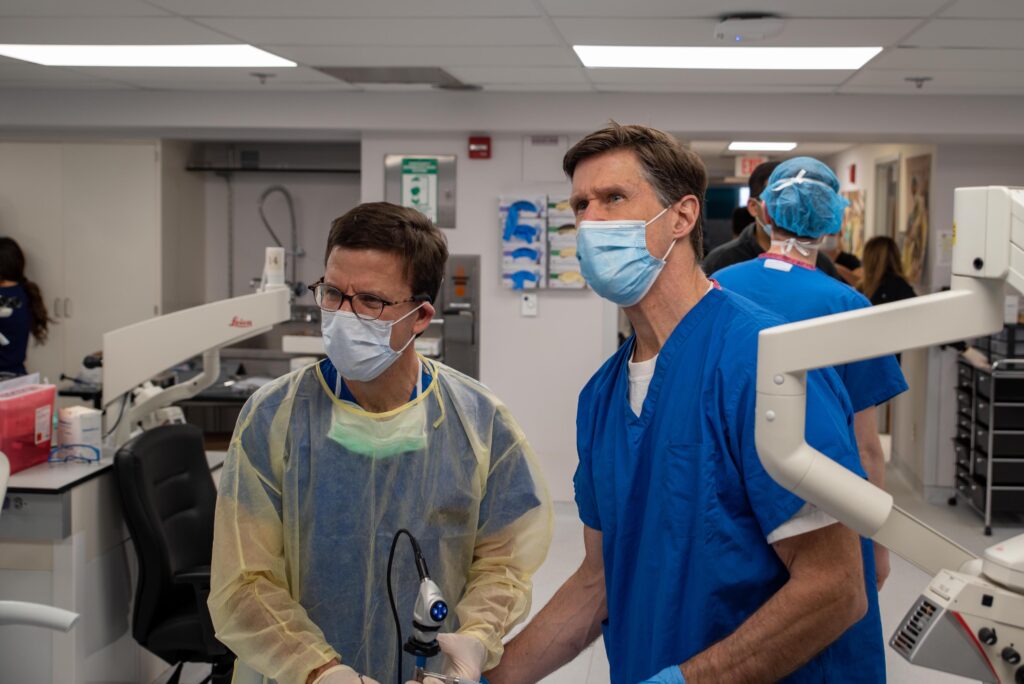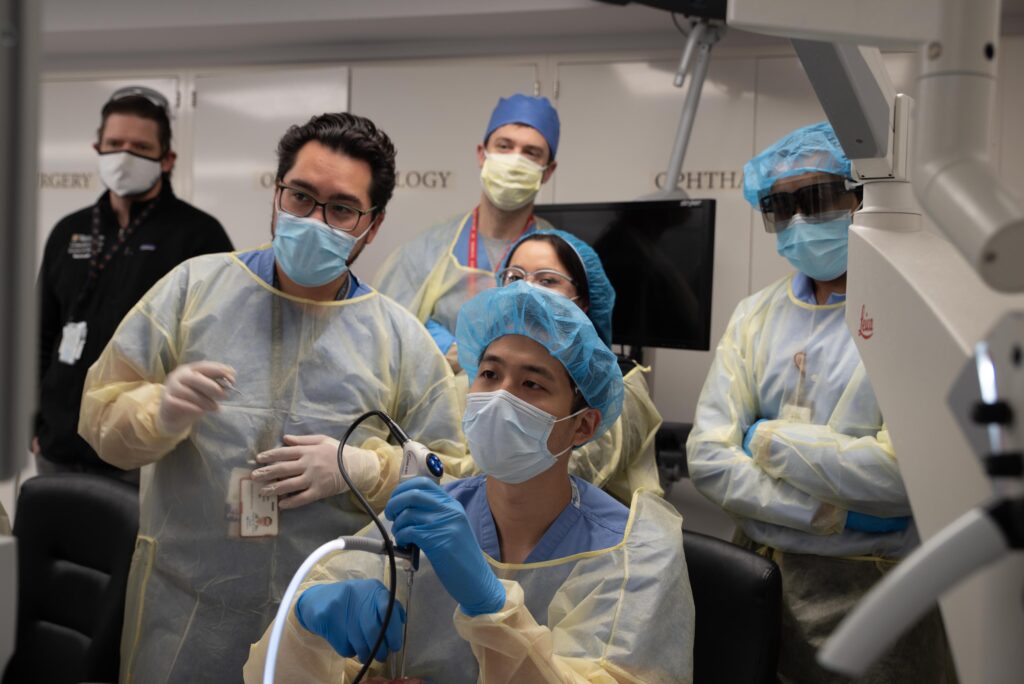Surgeons who have pioneered some of today’s most advanced skull base surgical techniques trained Washington University School of Medicine neurosurgery, otolaryngology and opthalmology residents on December 3-4, 2021.
During the two-day training session, Washington University neurosurgery, otolaryngology and opthalmalogy faculty were joined by two leaders in their fields:
- Kris S. Moe, MD, chief of University of Washington Facial Plastics and Reconstructive Surgery, who pioneered transorbital neuroendoscopic surgery (TONES), and
- Theodore H. Schwartz, MD, professor of Neurological Surgery at Weill Cornell Medicine, who developed and expanded the field of minimally invasive endonasal endoscopic skull base and pituitary surgery.
Held in Washington University’s multi-disciplinary simulation lab, residents practiced frontal-temporal orbitozygomatic approaches, supraciliary approaches relating to the eye brow and eyelid, oculoplastics approaches to skull base surgery and an eyebrow lab dissection (FTOZ). Residents also practiced transorbital neuroendoscopic surgery.
Navigating challenging state-of-the-art procedures with the latest surgical tools alongside surgical leaders and mentors is one of best training experiences for residents to become proficient and confident surgeons, according to Washington University neurosurgeon Michael Chicoine, MD, who led the Stryker Dissection course.

“Offering mentors during surgical training provides the perfect opportunity for residents to hone their skills while receiving advice from practiced neurosurgeons on techniques that are both critical and complex,” says Chicoine. “The lab would not have been successful without the dedication of our brilliant faculty members and visiting faculty who demonstrated difficult surgical approaches.”

Washington University experts who trained the residents included: neurosurgery faculty Michael Chicoine, MD, Albert Kim, MD, PhD, Sean McEvoy, MD, Josh Osbun, MD, Ananth Vellimana, MD, and Chair Greg Zipfel, MD; otolaryngology faculty Kristine Klatt-Cromwell, MD, Nyssa Farrell, MD, and John Schneider, MD; and ophthalmology faculty Steven Couch, MD, Phil Custer, MD, and Robi Maamari, MD.
“Many thanks to Education Coordinator Kayla Zoschg and Lab Director Brian Faddis for organizing this successful training event,” says Chicoine.
